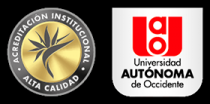Saint Louis University Training Aerospace Students for Tomorrow's Challenges
ST. LOUIS, Aug. 7, 2019 /PRNewswire/ -- Saint Louis University's Parks College of Engineering, Aviation and Technology prepares for its next space mission - the launch of Argus-2 this fall.
Michael Swartwout, Ph.D., associate professor of aerospace and mechanical engineering at Parks, said SLU's Argus-2 will be launched in October to the International Space Station (ISS). The Argus-2 is going into space as part of NASA's Educational Launch of Nanosatellites (ELaNa) program.
The team will fly with the spacecraft down to the NanoRacks facility in Houston this month. NanoRacks is the private company that handles the spacecraft ejection system on the space station.
NanoRacks will take SLU's spacecraft, load it into the ejection system with 10 others and deliver the whole stack for launch. An NG-12 cargo rocket will launch to the ISS in mid-October from NASA's Wallops Flight Facility in Virginia.
That release is currently slated for January 2020.
NASA calls the 4-by-8-inch, 6-pound satellite Argus-2. The satellite will fly with a commercial SD memory card, and SLU's lab will be routinely checking it for errors.
"Space radiation can damage/change the memory," Swartwout explained. "Such that a 1 becomes a 0 or vice versa. We want to understand how often those errors occur, so we can determine things like how many copies of critical data do we need to store in memory to ensure that we have at least one good copy."
A camera will be capturing pictures of the Earth, and on-board software will identify "interesting" features in those images. Researchers will then train the system in what is interesting, so it can learn to do it better on its own.
The second objective of Argus-2 is to take a baby-step towards SLU's next space project, called DORRE. DORRE will be a small constellation of two or more spacecraft and two or more ground systems (telescopes). AI techniques will be used to automatically detect and sense natural events, such as auroras, thunderstorms or meteors.
SLU students get hands-on learning experiences to prepare them for careers in innovation.
"We're giving students the opportunities and experiences necessary to jump into a career in space," Swartwout said. "That in terms of the big SLU picture has been happening all along."
Parks alumni have participated in the launch of every NASA manned mission. SLU's Space Systems Research Laboratory has been actively working since 2009.
View original content:http://www.prnewswire.com/news-releases/saint-louis-university-training-aerospace-students-for-tomorrows-challenges-300898085.html
SOURCE Saint Louis University




